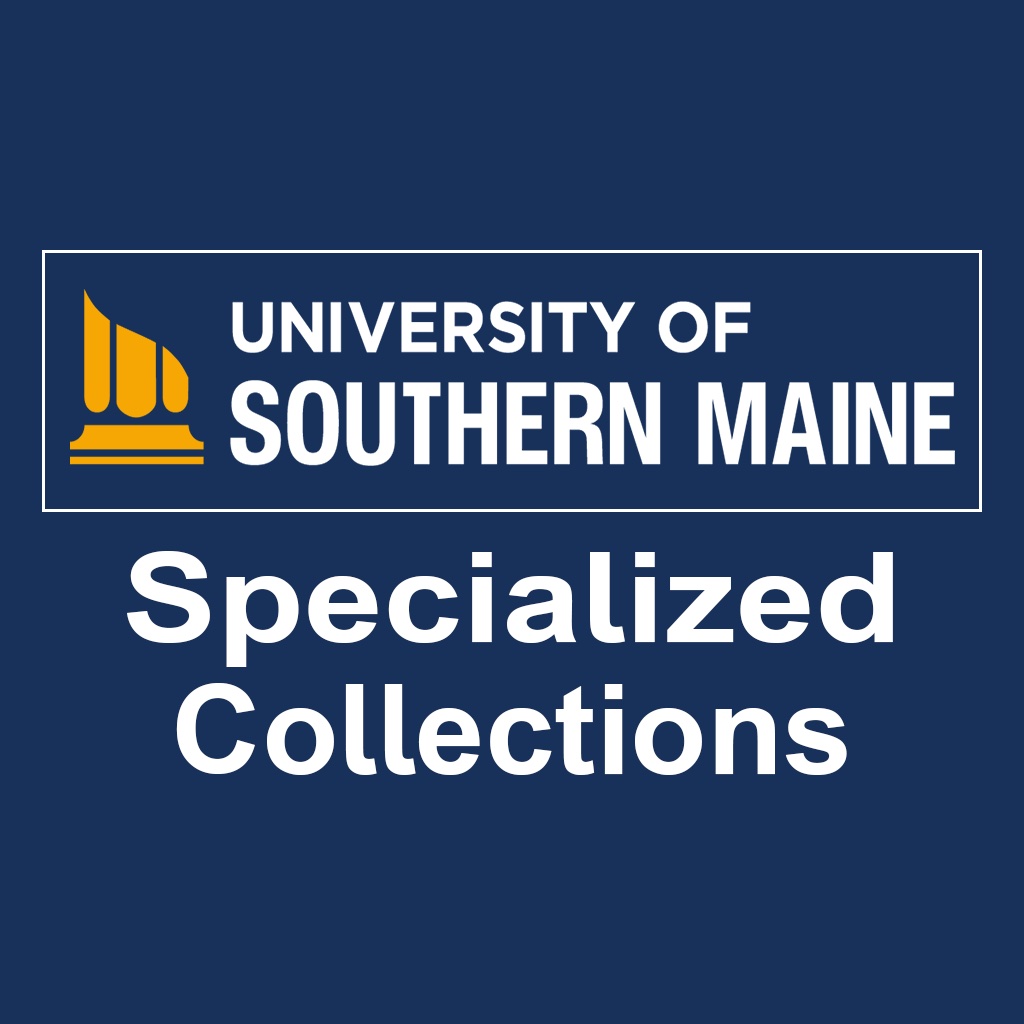By Sydney Morton, Web Editor
Six floors up in the Glickman Library, you’ll find Susie Bock, Coordinator of Special Collections and the Director of the Jean Byers Sampson Center for Diversity in Maine. Along with the Special Collections, the Glickman Library hosts the triage of the library system; Franco-American Collection, Osher Map Library and Smith Center for Cartographic Education. The three collections serve a great purpose within the university community, and they also serve an even greater purpose for the entire state of Maine.
These collections of primary resources are significant because “the collections are of unique and rare primary materials. They are unique because many of the materials in these collections are the only ones, or one of very few, available in the world,” says Bock.
Bock said that all three of the large collections have “similar [smaller] missions, different materials, and lots of crossover.” She believes that the biggest way the specialized collections continue to connect the USM community “is on a daily basis in the classes of the students. We have students that use these collections to study the history of nursing through autobiographies of pioneers in American nursing – as well as students in art, history, honors and sociology courses” that use the materials, manuscripts, books and archives to study for their respective classes.
One special collection of this magnitude is inspiring, Bock said. “USM is a public university, and collections such as these are what you expect to find at a private university. So, for USM to have three of these collections is just amazing.”
Starting in 2019, the three special collections began working together on a collaborative project in hopes of connecting the USM community even more to the primary resources and information within them.
“We [the three collections] all have a similar function and one overall mission,” said Bock. “I reached out to the other collections, and they were all so excited to work together – there is strength in a collaborative spirit.”
They began to share resources between collections and discuss policies related to their department functions. As a team, Bock said, they decided to “create an app for the specialized collections to make it quick and accessible for people to use the individual library collections.” The app, “USM Specialized Collections,” is now available for mobile download.
The first library being the Franco-American Collection is located on USM’s Lewiston-Auburn campus. This collection is specific to the history and culture of the Franco-American community in Maine. Some of the materials within this collection are primary resources like original documents, newspaper reports, speeches and diaries (etc.) that “relate to [Franco-American] local history, government, religion, language, education, industry, sports and the arts.”
Next up is, the Osher Map Library and Smith Center for Cartographic Education is also located on Portland campus at the base of the Glickman Library. The Osher Map Library has tens of thousands of maps that chart the world, and through the course of many different centuries, they show the evolution of how land, culture and humanity have changed over time.
Lastly, the Special Collections is a large department that, according to the website, “is composed of three units: Rare Books and Manuscripts, the University Archives, and the Jean Byers Sampson Center for Diversity in Maine.” A few notable resources within this collection include significant materials about “the ongoing history” of the African American, Jewish, and LGBTQ+ communities in Maine.
The collaborative effort across the three special collections will “continue [discussing] a variety of topics about how to store materials, certain teaching practices, potentially amounting a group exhibit, practices of preserving materials and digitization of those materials,” said Bock about the ongoing special collection’s project. “We want to make things within the collections more accessible for the USM community.”

